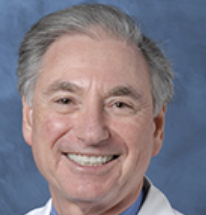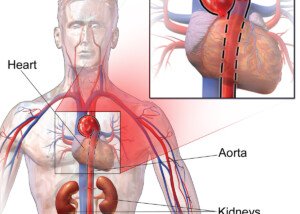
A cardiologist addresses the issue of whether or not chest tightness, but no shortness of breath, should be worrisome.
Have you been experiencing tightness in your chest, but no problem breathing, no shortness of breath — and as a result, you’ve been trying to reassure yourself that there can’t be a problem with your heart?
As long as you can breathe just fine, you figure that your heart is okay?
Think again.
Robert M. Davidson, MD, says that “absolutely!” you SHOULD be concerned if you have any tightness in your chest, regardless of whether you can breathe just fine or have difficulty breathing.
Tightness in the chest is a concerning issue, “especially if it is associated with exertion or stress,” says Dr. Davidson, a cardiologist with SignatureMD.
“Exertional chest pressure is called angina pectoris.
“It is the most common symptom of coronary artery disease, and may be associated with shortness of breath, but not necessarily.”
If you have exertional chest pressure or tightness, but don’t seem to have any unusual difficulty in breathing that seems out of proportion for the amount of exertion, it’s crucial that you have a thorough examination with a cardiologist.
If you have coronary heart disease, the treatment may be only medication and a recommendation of a healthier diet, plus exercise and other healthy habits such as ditching the cigarettes.
Depending on test results, you may also need more pronounced intervention such as the placement of a stent in a narrowed coronary artery.
A stent is a small, mesh-like tube. During a stent placement, a catheter with a balloon is inserted into the narrowed artery.
The balloon is inflated to open up the vessel, and the stent is then permanently placed in the artery to keep it open.
Chest tightness is not normal. Get it checked out by a cardiologist.
WARNING
There is NO way a cardiologist can rule out severe coronary heart disease based on ONLY the following:
A normal stethoscope exam
A normal blood pressure reading
A normal pulse rate
A questionnaire about lifestyle habits in which the patient says they’re active and have a healthy diet.
The fact that the patient does not smoke.
Absence of diagnosed heart disease in family members
An EKG (electrocardiogram)
This is what happened to my mother!
Ten months later, as a result of worrisome symptoms, a few abnormal test results and a catheter angiogram that revealed severe coronary blockages, she had emergency quintuple bypass surgery plus mitral valve replacement and a pacemaker implant!

Dr. Davidson is with the Division of Cardiology at Cedars-Sinai Medical Center, Los Angeles, and has been practicing for 30+ years. Areas of specialty include coronary artery disease, heart attack and palpitations.
 Lorra Garrick has been covering medical, fitness and cybersecurity topics for many years, having written thousands of articles for print magazines and websites, including as a ghostwriter. She’s also a former ACE-certified personal trainer.
Lorra Garrick has been covering medical, fitness and cybersecurity topics for many years, having written thousands of articles for print magazines and websites, including as a ghostwriter. She’s also a former ACE-certified personal trainer.
.









































